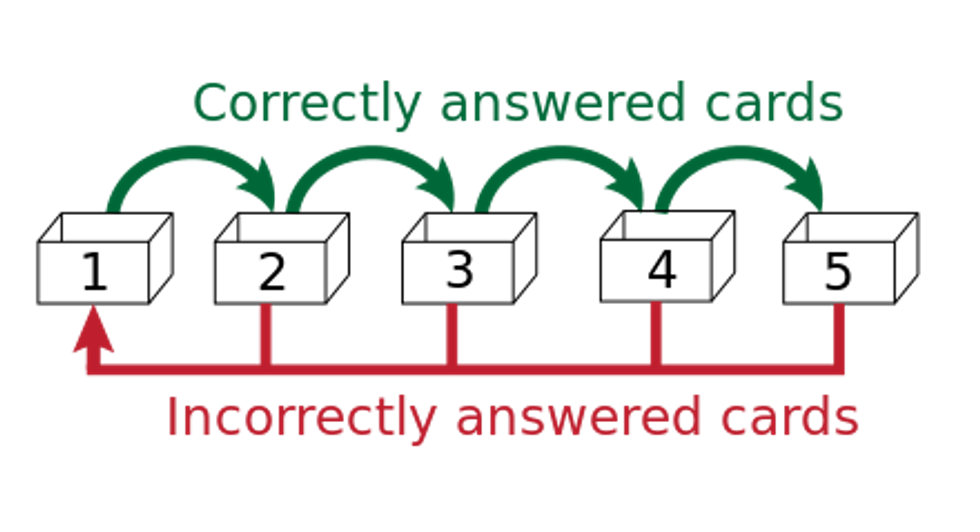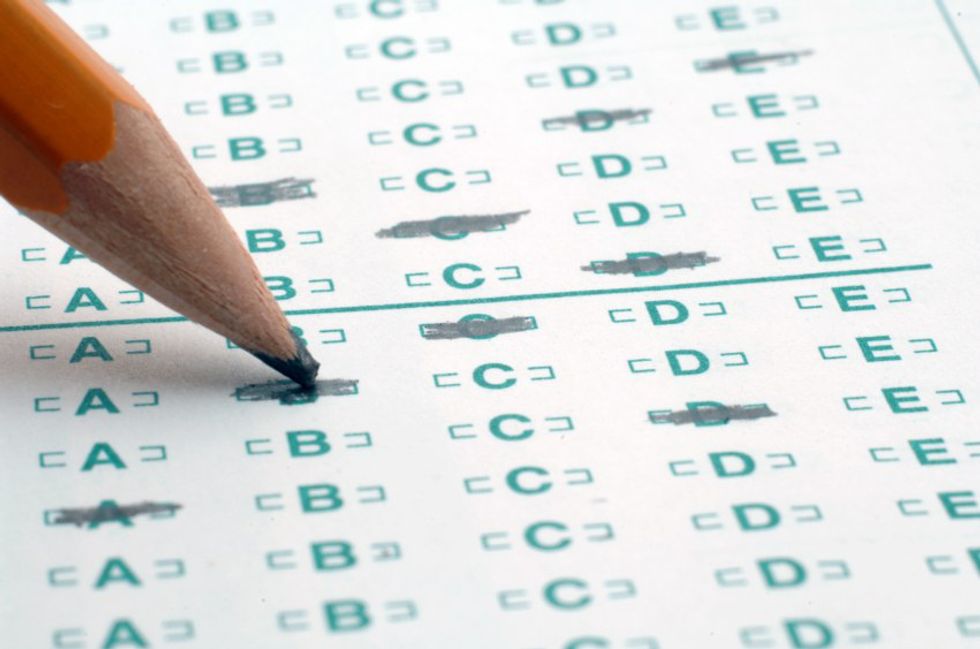We have all heard or experienced horror stories of studying hours upon hours only to fail an exam. No matter how much toil or trouble we put in, we just cannot understand the material. Instead of working harder, the strategy should always be to work smarter. The process of learning is very complex, and science is still far away from truly understanding it. However, that should not stop you from taking advantage of the few mysteries that it has solved.
1. Beat The Curve Of Forgetting
As soon as we learn something new, we begin to forget it. The curve of forgetting describes how quickly we forget a new topic after learning it. To beat the curve, expose yourself to the learned material every few days. Constantly reintroducing the information will allow you to follow the yellow curve and retain the information for a much longer time.
2. Use The Leitner System For Your Flash Cards

3. Switch Settings
A study in 1978 found that students who studied vocabulary words in two different settings were more likely to recall them later than the control group. We form memories based on all of our sensory experiences. If there is a distinct smell, scenery, or sound accompanying what we learn, the memory is strengthened. By studying everything in the same dull room, we essentially put all of our eggs in the same basket. Varying our surroundings may contribute to an increased strength in memory for each new concept we learn.
4. If You Can, Focus On Practice or Old Exams
A 2004 study found marked improvement in student test scores if they had access to practice or old exams before taking the real exam. Exposing yourself to the format of an exam helps reduce anxiety as it makes something daunting more familiar. Understanding the format of an exam also eliminates ambiguity of exam instructions, so students can focus more on the content. This might be why everyone’s ACT and SAT scores almost always go up the second time they take it, even if they did not study at all.
5. Sleep!!!
This might be the thousandth time you have heard this, but sleep really is important for studying. Research suggests that one purpose of sleep is to convert short-term memory into long-term memory. During sleep, activity in the hippocampus remains highly active. The hippocampus is important in storing long-term memory. People with Alzheimer’s disease slowly lose function in the hippocampus, which is thought to contribute to loss of memory.














 The minimum wage is not a living wage.
StableDiffusion
The minimum wage is not a living wage.
StableDiffusion
 influential nations
StableDiffusion
influential nations
StableDiffusion










